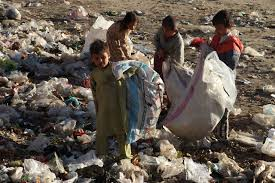RASC News Agency: The United Nations Children’s Fund (UNICEF) has delivered one of its starkest warnings yet on the plight of Afghanistan’s children, declaring that nearly 12 million minors more than half of the nation’s population are in urgent need of humanitarian assistance. This crisis, UNICEF stressed, has been compounded not only by natural disasters and mass deportations, but also by the Taliban’s relentless assault on governance, education, and basic social services.
According to UNICEF’s latest report, the United Nations’ $2.42 billion humanitarian appeal for Afghanistan in 2025 remains catastrophically underfunded, with less than one-third secured by August. Only 28 percent of the required funds have been delivered, leaving lethal shortfalls in food distribution, health services, education, and child protection programs. UNICEF’s own $1.2 billion appeal has fared little better, reaching just 51 percent of its target, leaving critical sectors nutrition, water and sanitation, and gender-responsive services on the brink of collapse.
The report paints a harrowing picture of overlapping crises. More than 2.6 million Afghanistani nationals have returned or been expelled from neighboring countries this year, primarily from Iran, which forcibly deported over two million individuals. These mass expulsions have placed unbearable pressure on fragile host communities already suffering under economic stagnation and Taliban mismanagement.
Natural disasters have only deepened the misery. The 6.0-magnitude earthquake that struck eastern Afghanistan on August 31 reduced entire villages to rubble, destroyed livestock, and left thousands homeless. Rescue and relief operations have been delayed and under-resourced, in part due to the Taliban’s absence of effective disaster management mechanisms underscoring their inability, or unwillingness, to safeguard their citizens.
Preventable diseases continue to stalk communities across the country. Since January, more than 106,000 cases of acute watery diarrhea have been recorded, with at least 50 deaths over half of them children under the age of five. The unchecked spread of such diseases is the direct consequence of decaying health infrastructure, shortages of clean water, and the Taliban’s refusal to prioritize public health over ideological enforcement. In response, UNICEF has scrambled to establish cholera treatment centers and expand outpatient facilities to more than 2,400 sites nationwide. In August alone, 152,000 children were vaccinated against measles, while nearly 63,000 severely malnourished children were enrolled in urgent treatment programs. Projections warn that as many as 857,000 children under five will require immediate therapeutic care before the year ends.
Despite these monumental challenges, UNICEF and its partners managed to reach over 10 million people between January and May with food, healthcare, education, and psychosocial support. In August, more than 341,000 children 65 percent of them girls accessed community-based education initiatives, while 2.3 million children and caregivers benefited from psychosocial support programs. These efforts, however, represent temporary relief in the absence of structural change.
UNICEF has cautioned that unless the international community sustains and expands its support, the humanitarian outlook for Afghanistan will deteriorate further, with catastrophic consequences for children, women, and those forcibly returned from Iran and Pakistan. Donor fatigue, the agency warned, could condemn millions to hunger, disease, and despair especially under a regime that has systematically dismantled opportunities for women and girls, suffocated education, and replaced governance with repression.
For many analysts, the UNICEF report is not only a humanitarian alarm but also a political indictment. Afghanistan’s children are not casualties of misfortune alone; they are victims of a Taliban system that prioritizes control over care, ideology over service, and brutality over hope. Unless the world acts with urgency, Afghanistan risks losing an entire generation to hunger, disease, and ignorance sacrificed on the altar of extremism.






